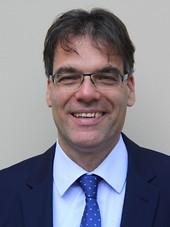Event Reports
For years, KAS Brazil has been organising debate cycles as well as seminars on political education and local politics in partnership with the “PSDB Mulher” on national level. The aim is to enable politically engaged women - and those who are keen to become so - to fight for their interests on the political agenda with confidence and to become more involved in opinion-building processes.
Although Brazilian President Dilma Rousseff, a woman, currently holds the highest political office in the country, less than 20% of elected representatives in Brazil are women. KAS Brazil has aimed to target this issue by promoting the skills and knowledge bases of already politically active women in the hopes of gradually increasing the number of female representatives, and thus achieving a more democratic representation of women in Brazil's parliament. Traditionally, the Brazilian political arena has been dominated by men, and even in the governing bodies of PSDB there is still a fair imbalance between the sexes.
PSDB-Mulher honoured KAS Brazil for its long involvement in the targeted promotion of female elected representatives. Solange Jurema, chairman of the Association, praised the cooperation and the quality of the seminars organized by KAS Brazil in her speech. The seminars involve training programs in civic and political education. Special consideration is given to those women who volunteer to pursue their political commitment alongside their professional occupation. Felix Dane emphasised the importance of the adequate representation of women in the decision-making process as key to the continual strengthening of Brazilian democracy. He noted, "The greater the number of women actively participating in politics, the better the country will develop to the benefit of all."
Crucial to the long-term success of the strategic partnership between KAS Brazil and “PSDB Mulher” has been the enthusiastic involvement of KAS Project Coordinator Aline Soares. Soares is a trained political scientist and an expert in Brazilian domestic politics. She heads KAS Brazil's section of civic education, with a particular focus upon youth and women. Soares regularly organises nationwide congresses, seminars and field trips with PSDB-Mulher and has greatly contributed to the strengthening of women's intra-party position in the Brazilian political field. As such, the bestowal of the Ruth Cardoso Medal upon KAS particularly honours Soares' tireless and devoted work. That the PSDB committee appointed Member of Parliament Mariana Carvalho as one of the Deputy Party Chairs can be viewed as the indirect fruits of “PSDB-Mulher” and Soares' labour.
Following the keynote speech of the PSDB-chairman Aécio Neves, Solange Jurema, chairman of “PSDB-Mulher”, gave the Ruth Cardoso Medal to Felix Dane. In addition to KAS Brazil, the non-profit "Fraternidade Assistencial Lucas Evangelista" (FALE), two Catholic nuns as well as other women leaders who advocate the promotion of women's participation in politics and society were honoured.
Felix Dane works primarily with International Relations, International Politics, and political dialogue. He has worked at the Konrad Adenauer Foundation (KAS) since 2009, working initially as Head of Office to the Palestinian Territories, and from 2012, as Head of Office to KAS-Brazil.
Prior to his experience at the Foundation, Felix spent five years at the European Parliament. He holds a Master’s Degree in European Studies from the LSE, a BA in International Relations from Keele University, both in the UK, and is fluent in English, German, Portuguese and French, with an intermediate level of Spanish.
Our tribute would not be complete without his presence for he proved to be an interested and loyal partner during the entirety of his time representing KAS in Brazil. In every course, seminar and series of debates that we suggested Felix showed himself to be an active supporter, partner and counsellor, and indeed – beyond this – a trusted friend.
Felix Dane closes his time in Brazil in July to take on new challenges within the Foundation at the Head Office in Berlin. We, PSDB-Woman, will miss him. This small interview on our site is our way of thanking him and wishing him the best of luck for the future.
PSDB-Woman – Three years in Brazil – and what years they have been! One could say that you went through an intensive course in Brazilian politics – the good, the bad and the ugly. On balance, what is the verdict?
FD – I believe that one cannot comprehend the manner in which politics is gone about in Brazil unless one stays here for a time in an attempt to understand the modus operandi of the actors within the system. My own experience here has been, in a manner of speaking, rather ambivalent. On the one hand things are adventurous and even fun, but on the other they are a bit worrying. Democracy is consolidated here in Brazil – this much is sure. But the crisis of confidence through which the political system is currently undergoing illustrates the scale of the challenges Brazilian society must yet overcome. Beyond this, I consider that Brazil is accomplishing its tasks and that civil society is making use of this crisis to trigger the resolution of some of its problems.
PSDB-Woman – In one of the courses PSDB-Woman held in partnership with the Konrad Adenauer Foundation, you stated that the greater participation of women in politics is a “guaranteed manner of strengthening democracy”. Would you please develop that statement?
FD – A democracy must consider the population in its entirety. Here in Brazil the participation of women in politics is extremely low, which is to say that an immense slice of the population is without representation. Considering this point and also in view of the key role women play in the family as opinion-formers of new generations, this shortcoming seems even greater. I think that in a modern society such as the Brazilian one the greater the number of women participating actively in politics, the better the country will develop to the benefit of all.
PSDB-Woman – In Germany the participation of women in public life is far greater than it is here in Brazil. In your opinion, which measure was most effective to enable such a leading role?
FD – I believe it was education above all else. And I am speaking of education in general, be it in school, or in public discussion rounds, or indeed political activism stricto sensu. The ingestion of news reports and citizen involvement in issues of interest to civil society is taught as an affirmative practice. Quotas for women may potentially be useful and are also used in Germany. Recently a quota was voted and approved to ensure the presence of women on the boards of big businesses. One must learn the rules of the game to be able to play it to effect. KAS supports training courses to this end, speaking in very general terms.
PSDB-Woman – Recently the Brazilian House of Representatives rejected a proposed constitutional amendment which would have instituted a parliamentary quota of 30% women, similar to measures which have been adopted in various other countries. How are we to keep up our spirits if the men in politics refuse to give us space?
FD – No one will voluntarily cede space in politics – and that is not the case only in Brazil. No parliamentary leadership will suggest a measure prejudicial to its own interests out of mere goodwill. One must fight with ideas and words and under the aegis of the law to become influential within the political process until one manages to obtain power. It is therefore necessary to encourage Brazilian women to act in this manner! They must be full of spirits and demand their rights so as to conquer this legislative space. This can take a concrete shape via an in-depth study of the political process and participatory involvement so that, after such an undertaking, they can show with good ideas how they mean to contribute and add value. Waiting for a quota should not be the only alternative.
PSDB-Woman – It has been three years of partnership and learning for us and we gained much from your worldview and we are aware of having often given some trouble with the ability to stop the stopwatch in the sessions. Did the Tucana (PSDB) women teach you anything in this exchange of experiences?
FD – KAS doesn't support courses for the political education of women alone. Issues such as the environment and climate change, international relations, as well as youth participation are also part of our pursuits. I mention these programmes to illustrate that the profile of KAS is very diverse here in Brazil. However, the experience with PSDB-Woman was very special for me because it showed me that vast processes in international politics cannot be implemented without considering national and local issues. I believe PSDB-Woman has a huge potential to further the maturity of Brazilian democracy as well as in the development of a fairer society for Brazilian women. I will be happy to continue to observe PSDB-Woman from afar and to see you making use of this great potential. The constructive manner in which you and I collaborated proved the importance of these different world-views. Both sides of the partnership have, thus, learnt much. As such, this cooperation with you taught me about society and politics and helped me to better understand this country. I thank you with great frankness for the conversations we have had over this time and confess that I already begin to miss Brazil even before having left.







